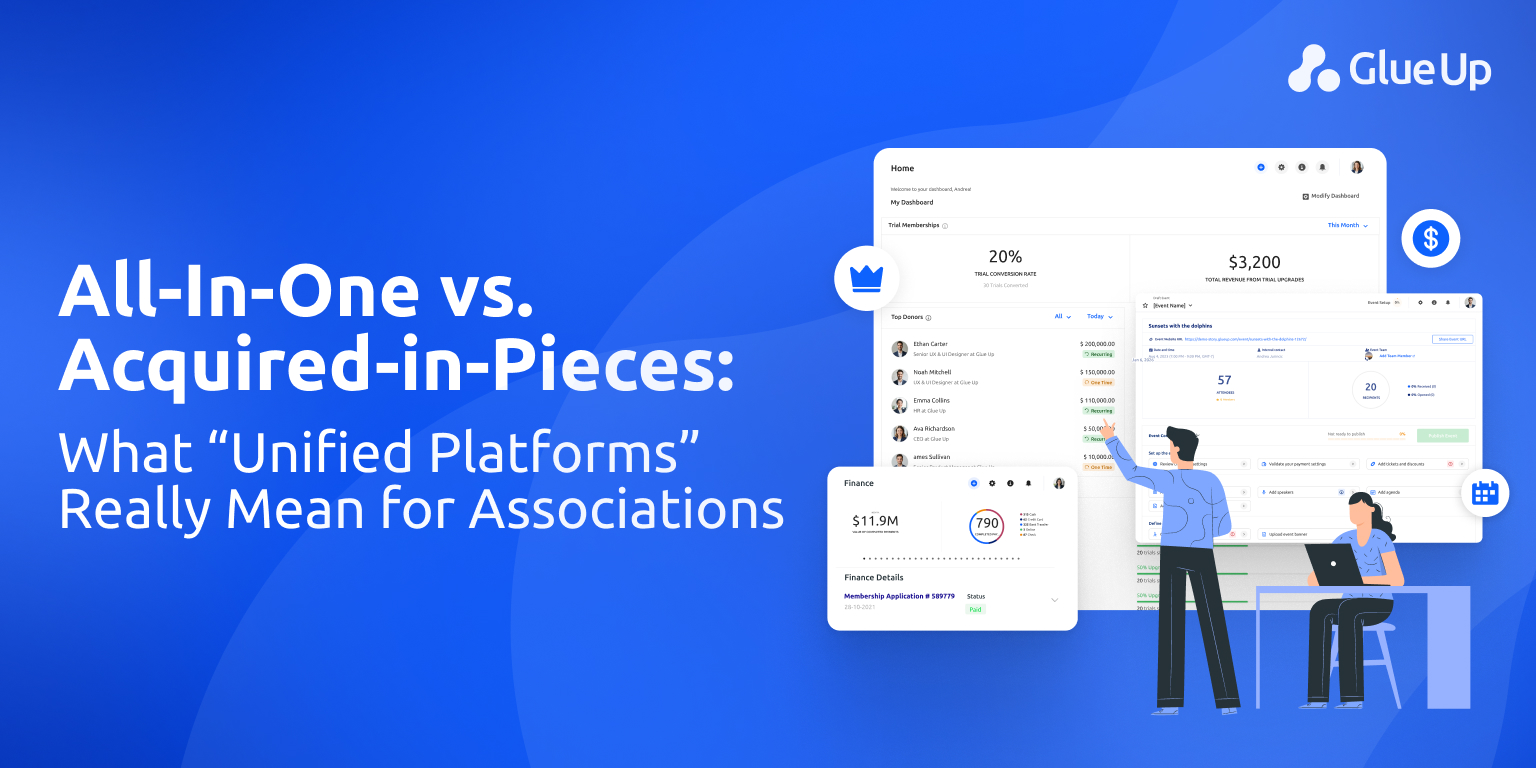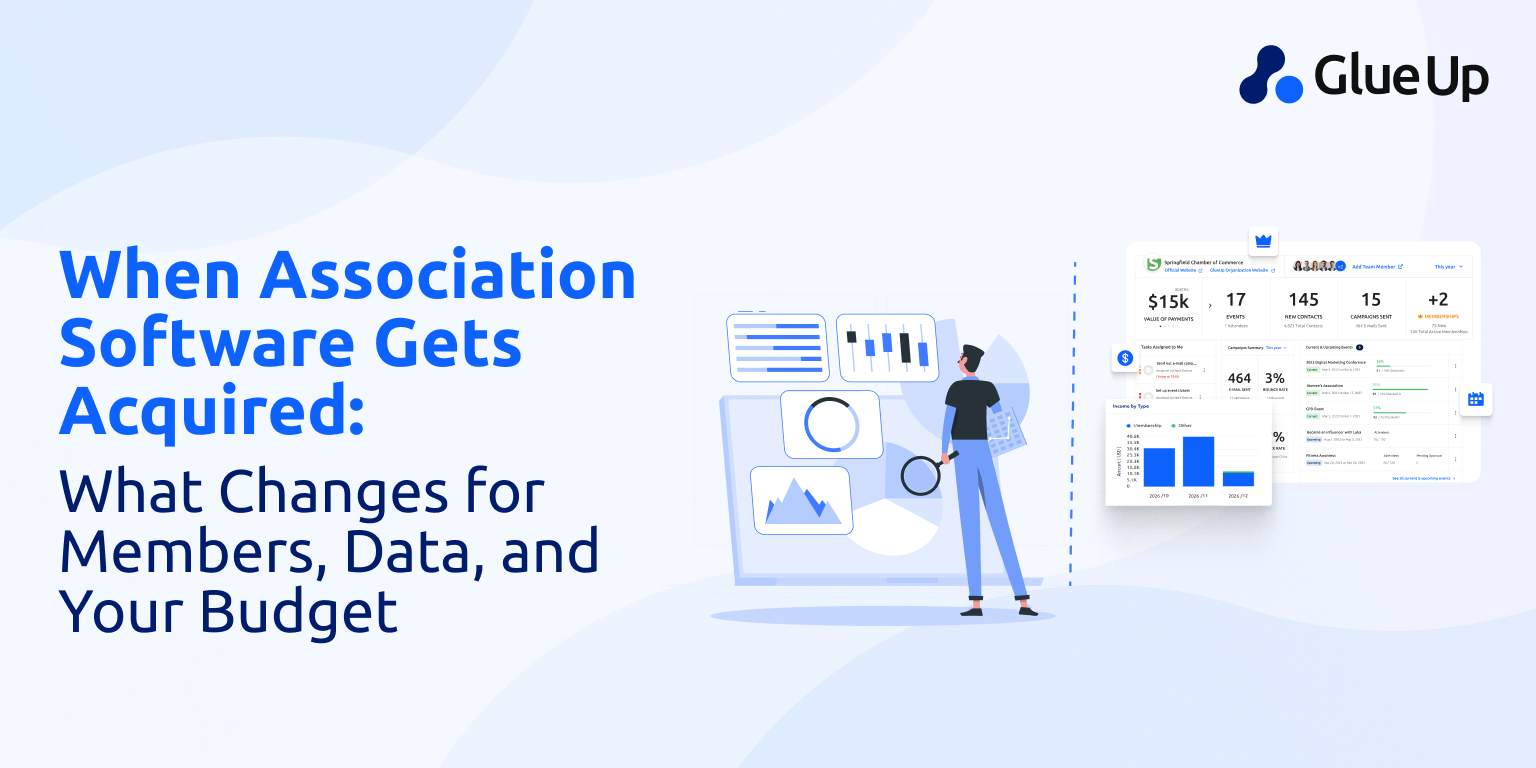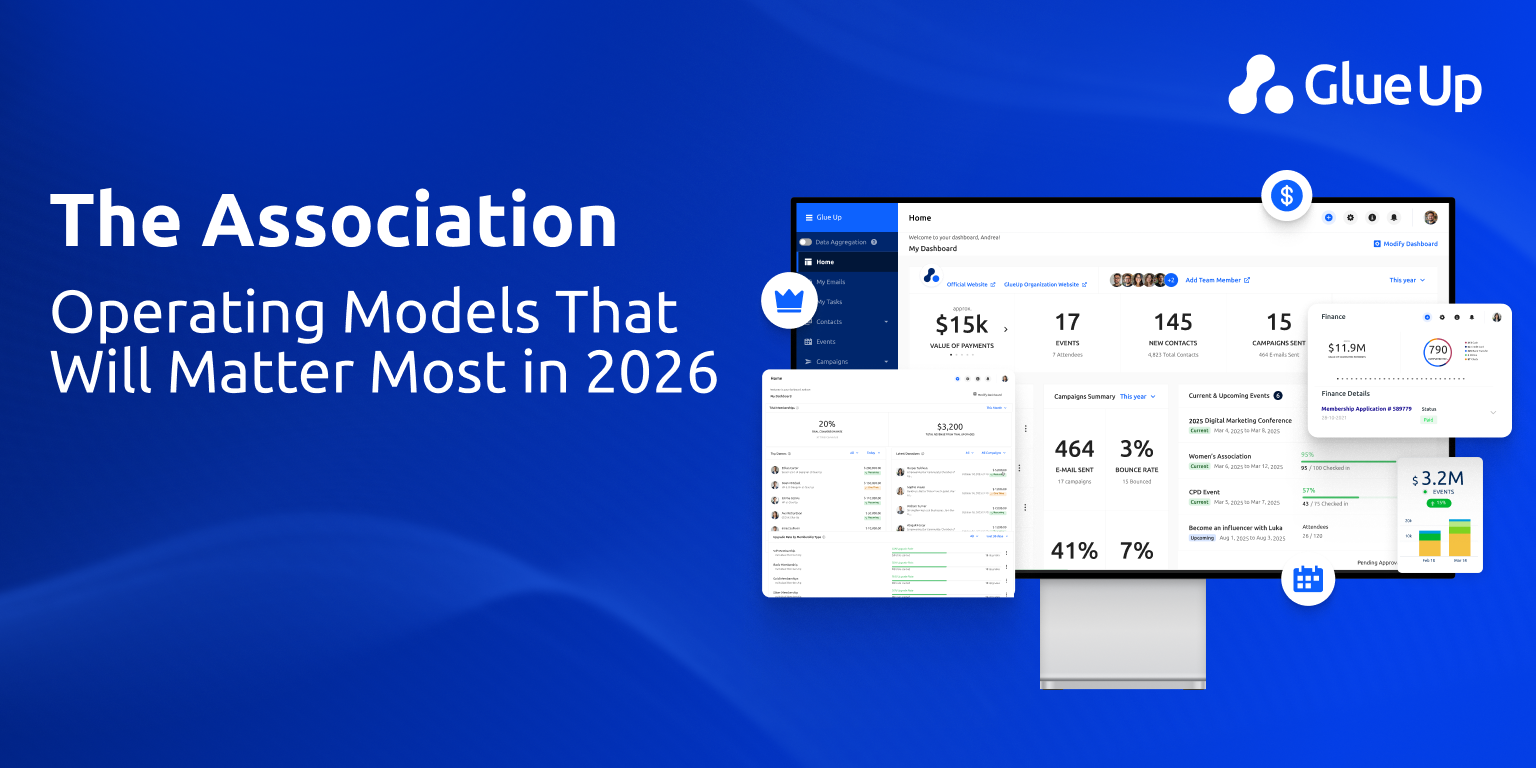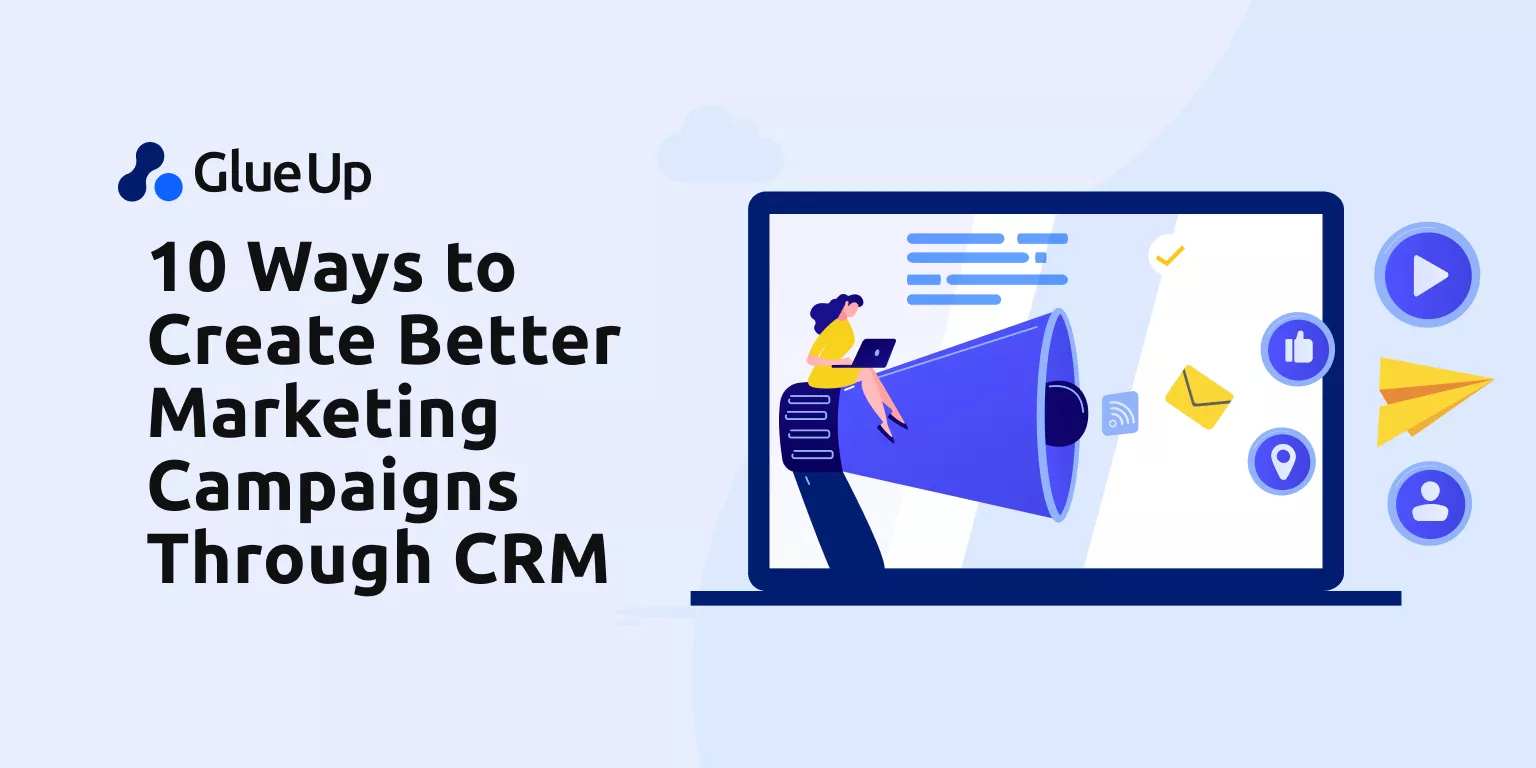
Last updated: March 14, 2024
You might have organized hundreds of campaigns and are now wondering how a CRM can make them more effective.
A CRM, or Customer Relationship Management System, is a powerful tool that helps you manage interactions and relationships with your current and potential members.
However, its capabilities extend far beyond basic contact management.
It provides specialized tools for managing relationships, including identifying business opportunities, recording service issues, and managing marketing campaigns, all in one place.
Let's explore how a CRM can help you create better marketing campaigns.
Key Takeaways
- CRM systems provide rich member data and insights that allow you to segment your audiences and create highly targeted and personalized marketing campaigns, increasing relevance and effectiveness.
- You can use a CRM to understand your members and their needs, making it easier to customize information and address individual demands.
- Through automated workflows and drip campaigns, CRMs enable lead nurturing by delivering relevant content and offers at the right time, guiding prospects efficiently through the sales funnel for higher conversion rates.
- Detailed campaign performance metrics available in CRMs provide the data necessary for optimizing campaigns and allocating resources effectively, leading to better ROI.
- By understanding members' engagement levels, preferences, and pain points, you can leverage CRMs to address these factors through targeted campaigns, improving membership retention.
How do Campaigns Along with CRM Work Together to Get New Members?
Marketing campaigns put your organization's name in front of your target audience. When people are interested, they give you their contact information - these are leads.
The leads then go into your CRM (customer relationship management) system. The CRM automatically sends relevant information to the leads through emails, texts, etc. This nurtures the leads by educating them on what your organization offers.
As the CRM tracks the leads' engagement, it qualifies which ones are most interested in joining. Those hot leads get pitched a membership offer through your sales call, webinars, or online signup process.
Marketing brings in the leads. The CRM nurtures them. And the two systems together convert prospective leads into new members for your organization.
CRM vs Marketing Automation Software
What's the difference between CRM and Marketing Automation Software? While both CRM and marketing automation software are valuable tools for marketers, they serve distinct purposes. CRM software focuses on managing customer relationships throughout the sales funnel, from lead generation to nurturing and conversion. Marketing automation software, on the other hand, excels in automating repetitive marketing tasks such as email campaigns, social media posting, and lead scoring.
How to Create Better Association Marketing Campaigns With CRM?
A variety of CRMs offer diverse benefits, but an AI-powered CRM like Glue Up enhances your marketing campaign significantly by providing numerous advantages, including
1. Purposeful Targeting
Most association and chamber marketers focus on developing and communicating a powerful brand message.
To achieve more targeted marketing, segment your members into smaller groups based on their interests, needs, and engagement history.
Glue Up’s CRM centralizes all member information in one place, allowing you to learn about their preferences and identify potential opportunities worth pursuing.
Thus, it saves your time and effort while generating leads ready for conversion, making your marketing efforts more relevant.
2. Create Segments
You can easily group members based on common interests, characteristics, needs, and previous interactions in the CRM.
Thus, you can use it to segment your members based on predetermined criteria for clarity in your marketing efforts.
CRM also provides a comprehensive perspective of these individual groupings, allowing you to better understand them.
If your association or chamber has various member types or offerings, simplify your work and avoid confusion by designing multiple engagement pipelines for different segments.
To obtain more clarity and cater to your target audience with customized emails:
- Further divide contacts by member level, interests, and engagement history.
- Cross-promote your offerings to different audiences and track campaign results directly from the CRM.
- Learn about their interests, dislikes, and recent actions, keeping those specific traits and characteristics in mind when building marketing efforts.
Your members pay more attention to such messages as they can relate to them, increasing the likelihood of positive reactions.
3. Personalized Content Marketing

Personalized content is more relevant and well-received by members.
According to a report, 87 percent of customers believe that personally relevant branded content positively impacts how they feel about an organization.
You can use a CRM to understand your members and their needs, making it easier to customize information and address individual demands.
Instead of addressing your members with generic terms, use the CRM software to personalize elements like their first name, gender, or the organization they represent.
4. Improved Accountability
When using a CRM with reporting capabilities, you can easily track the efficiency of their marketing activities.
This helps identify successful strategies and areas requiring more effort. It helps you to make informed decisions and develop more effective methods for increasing response rates.
CRM also allows you to modify reports to meet your specific organizational needs, providing the precise information required.
Furthermore, once you've established a system for recording and analyzing data, you'll be able to provide reports faster.
5. Lead Nurturing

CRM tools help associations nurture leads through automated workflows and drip campaigns.
It helps you deliver relevant content and offers at the right time, guiding prospects through the sales funnel more efficiently, resulting in higher conversion rates and better ROI.
6. Campaign Tracking and Analytics
You can capture and integrate customer feedback and interactions into your CRM system.
It also provides detailed analytics on marketing campaign performance, including open rates, click-through rates, and conversion metrics.
This data allows you to optimize your campaigns, allocate resources more effectively, and make data-driven decisions to attract both current and potential members.
7. Marketing Automation

Marketing automation involves automating processes like sending emails, posting events, as well as processing member applications.
Automated marketing messages effectively target members and handle marketing operations and multipurpose campaigns across numerous platforms.
Also, Integrating marketing automation with CRM will help you save money and increase productivity.
CRM and automation help synchronize data with sales and service teams, improve member relationships, and provide a single data management approach.
Because these platforms are sophisticated and intuitive, combining them can yield significant marketing outcomes.
8. Membership Retention
CRM systems help you understand members' engagement levels, preferences, and pain points.
You can increase retention rates, reduce churn, and improve member satisfaction by addressing these factors through targeted marketing campaigns.
9. Upselling and Cross-Selling
CRM systems provide insights into members' interactions with your brand, so you can identify opportunities for cross-selling and upselling.
You can maximize the lifetime value of existing members by offering them relevant offerings.
10. Keep the Data Clean
A robust CRM system helps manage datasets more effectively while guaranteeing security and compliance with data protection rules. Additionally, an all-in-one CRM like Glue Up allows you to manage members' marketing preferences in one place.
When a member opts out of one communication channel, that preference can be kept centrally and conveyed to all teams and channels. Also, invalid email addresses can be automatically removed from your segments.
Boost Association Engagement with CRM-Driven Marketing
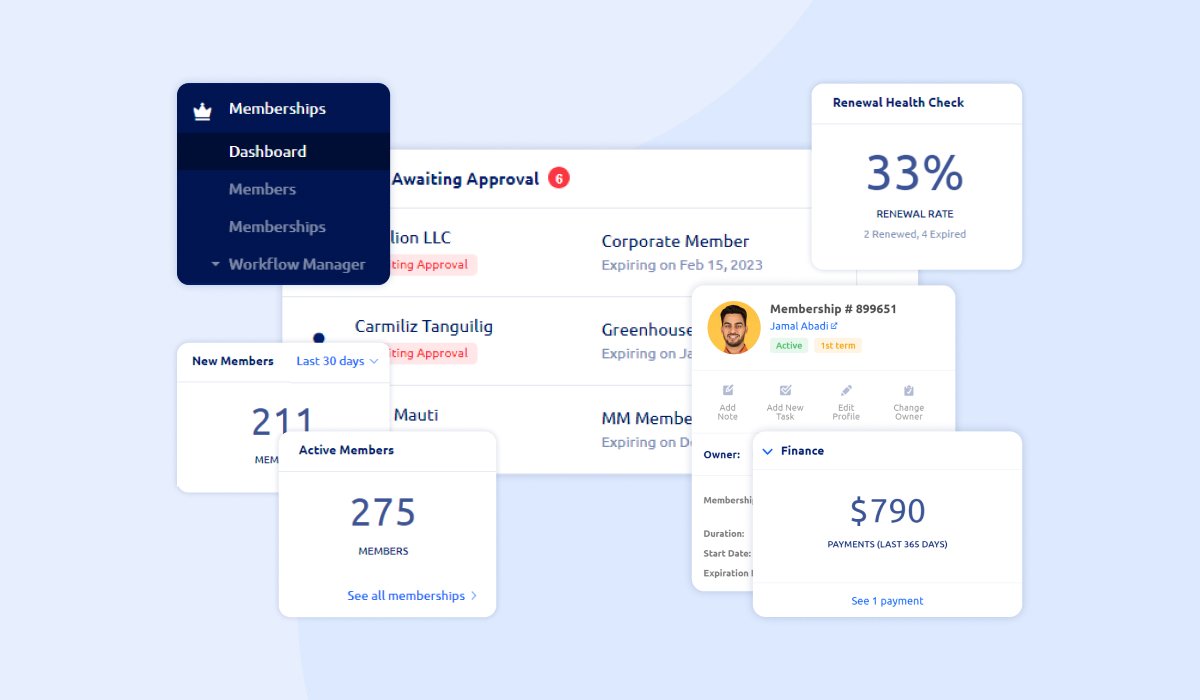
CRM can be the most effective solution for your membership marketing, allowing them to operate more efficiently to achieve the common goal of raising your organization's revenue and member satisfaction.
It helps you handle leads, and member engagement more effectively.
Thus, you can use it to organize member data, track leads, increase your potential, and store and manage contact and member data for long-term success.
If you want to experience a robust CRM first-hand and how it can help you create effective campaigns, feel free to book a demo here.

